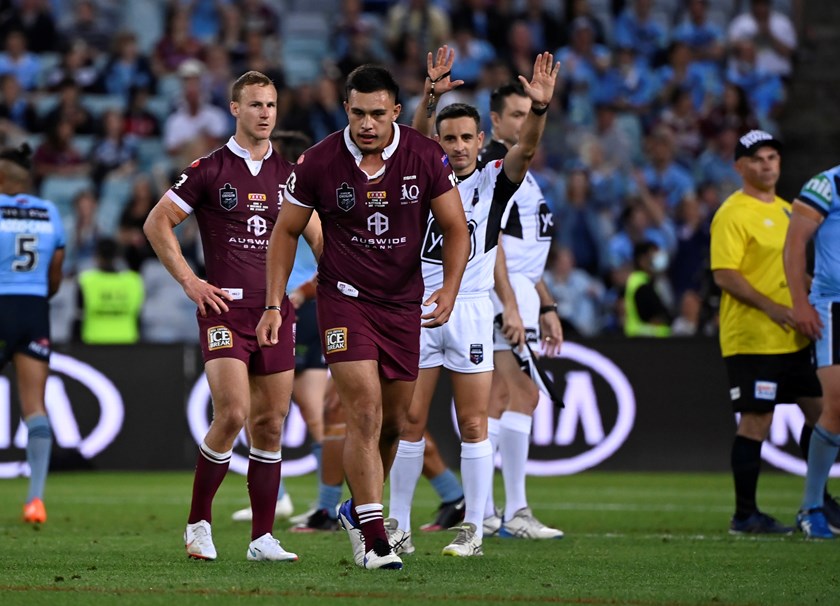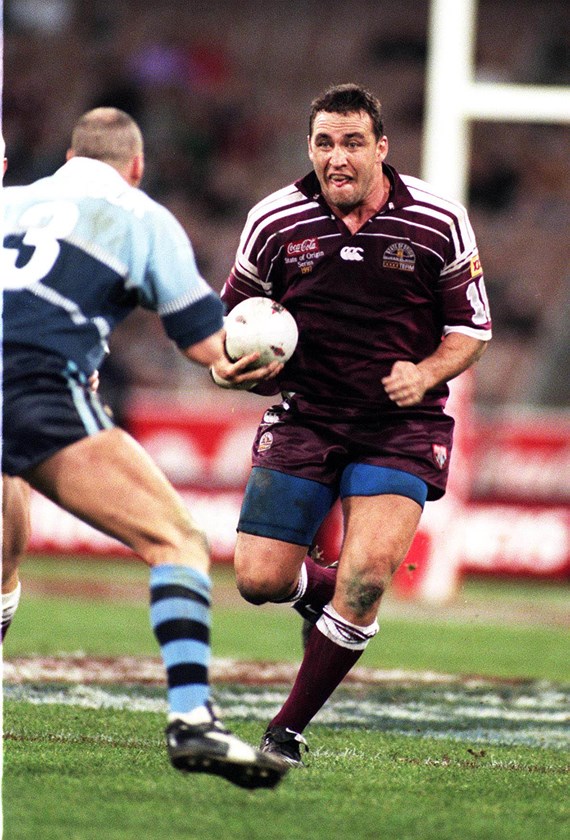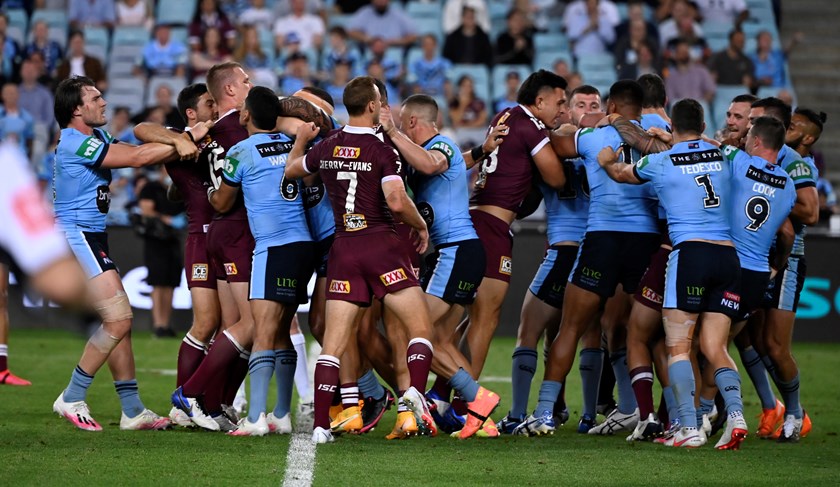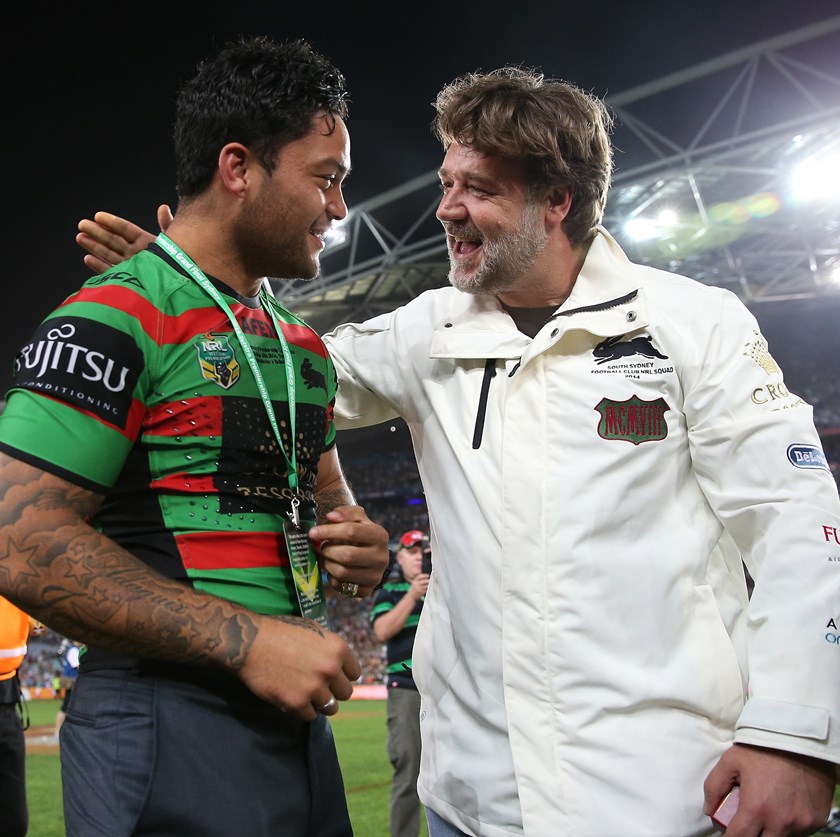More than 20 years after Craig Smith successfully pleaded to be fined his Origin match payments rather than banned from playing, the NRL has adopted a similar policy aimed at ensuring stars don’t miss big matches for minor offences.
Smith, who was charged for a high tackle while playing for the Dragons ahead of the 1997 series opener, told then judiciary chairman Alan Sullivan QC that the opportunity to make his Queensland debut was worth more to him than his Origin match payments.
The decision to make changes to the judiciary system so that players are docked a percentage of their match fees for minor offences in Origins and Tests instead of serving a suspension in the Telstra Premiership is also intended to protect the interests of clubs and fans, while still providing a deterrent against foul play.

Serious offences will continue to result in a suspension but in most cases, it will be the player’s hip pocket that is most affected if he is involved in an incident of foul play, with fines applied to a greater range of grade one and grade two offences in representative matches.
NRL head of football Graham Annesley said the issue of players missing a grand final for a minor offence or being unable to play for his club due to an incident in Origin had been the subject of debate within the game for as long as he could remember and the ARLC had decided to act.
“There has been this debate for a long time about whether the value of suspensions and penalties should be different for competition games than they are for finals and rep games,” Annesley said
“There has never really been a suitable answer that everyone could agree on, so what we have attempted to do here - and what the Commission has attempted to do by approving these changes effective immediately - is to at least have a genuine attempt to address some of these issues.
“It is not perfect, and it doesn’t address every issue, but we think this will go a long way towards addressing some of those issues.”
How will penalties differ in NRL matches and representative games?
NRL premiership and representative judiciary records will now be separate so that a player who has one or more previous offences for his club still has a clean slate in Origin.
Therefore, if he commits a minor offence in a representative fixture the penalty imposed won’t be compounded by his record at club and in most cases a fine will apply.

As a result, players will not miss matches for their club or the following Origin or Test for a minor offence – considered to be anything worthy of a grade one or two charge, with the exception of a reckless high tackle.
“For want of a better term, we will have two separate ledgers and they won’t cross over in terms of prior offences,” Annesley said.
“There will be a separate table of penalties for representative games, including State of Origin, internationals and All Stars.
“In those big games there will be more fines handed out - rather than suspensions - than you see in the NRL competition for minor offences.”
Does this mean it could be open slather in Origin?
Players will still receive suspensions for serious offences, including a reckless high tackle, so it is only their judiciary records that are treated differently.

Only grade one and grade two offences will be eligible for a fine so there is a still a strong deterrent for players to avoid committing any serious acts of foul play.
“The last thing this is intended to do is to create the impression publicly that we are loosening the reins on foul play in big matches. Nothing could be further from the truth,” Annesley said.
“An offence in NRL competition game will still be an offence in a representative game. Players will still be charged but the penalties will be different and there is a very good reason for that.
“If a player commits a serious offence that requires a significant term on the sideline that will still be happening.
“Should a player get suspended prior to a rep game he still can’t play in that rep game and equally if a player does commit a relatively serious offence in a rep game and he gets a suspension for a number of weeks that will have to be served in the NRL competition.
“It is their records that are separate, not their suspensions.”
How much could players be fined and who pays?
The value of fines range between 10 and 50 per cent of match payments for a representative game – meaning players in Wednesday night’s Origin risk being slugged up to $7,500 as the Maroons and Blues stars each receive $15,000 per game during the interstate clash.
Graham Annesley weekly football briefing - Round 13
The lowest financial penalty facing a player found guilty of a minor charge would be $1500, although players are still entitled to a 25 per cent discount for an early guilty plea.
“When a player plays in an Origin game or an international game, they get paid a match payment and that can be a reasonably significant amount of money,” Annesley said.
“The fines come off the player’s match payments, so the player doesn’t get that money.
“It will definitely reduce the impact on NRL clubs, whereas players in the past have received suspensions and have to serve them in club games.
“For most low to mid-level offences a rep game offence will not count against an NRL record. You might get a fine or a couple of fines in an Origin series but that will not be held against you in the NRL competition.
“The record of offences in rep games will only apply for that calendar year so, for example, if a player committed an offence in Origin and then another offence in an international game, they would all count against the player but the following year the player goes back to a clean record in regards to that representative ledger.”
Why not go further so players only serve suspensions for Origin offences in future representative matches?
The ARLC did consider separating the penalties for club and representative fixtures but it is not feasible when the Telstra Premiership is played over 26 weeks plus finals and the Origin series comprises of just three games per season.

There would also be outrage if a player was able to continue playing for his club if he committed a serious offence during Origin.
“For one match it probably makes some sense but if a player got a three-match suspension in the third Origin game that would effectively rule the player out of the entire Origin series for the following year and they would be out for effectively two years,” Annesley said.
“It may sound logical to say if you get suspended in a rep game serve it in a rep game but I don’t think it would send the right message if a player got suspended for three or four weeks for a serious offence in Origin and they turned out for their club a couple of days later.”
What about finals matches?
There have also been changes made for the finals series to help ensure a player doesn’t miss a grand final because of previous charges for minor offences.

During the regular season, a player can only accept a fine for his first two offences, but he will be able to do so a third time if charged in a finals match.
“It gives them an extra lifeline,” Annesley said. “All players now finally can accept a fine for any grade one offence during the finals regardless of their record, except for a reckless high tackle.
“This does not apply to reckless high tackles because once you get to reckless high tackles you have already gone beyond three categories of careless high tackles. They receive a suspension.
“The bottom line is that hopefully we see our players receive a fine for minor charges and still be able to appear in the biggest games of the year – the games that they want to play in, the games that their clubs want them available for and the games that the fans want to see them playing in.
“That is the basis of these changes. It is not perfect but a big step forward.”


